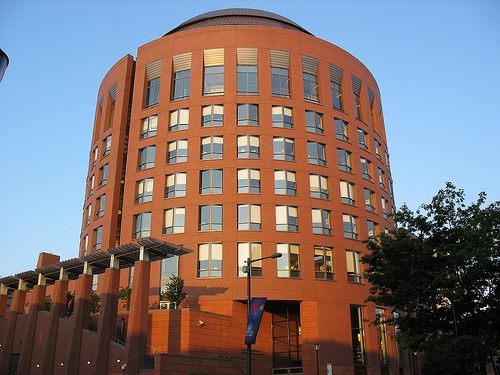University of Pennsylvania
Wharton School
Wharton MBA for Executives – Philadelphia & San Francisco
Jon M. Huntsman Hall Suite G21
3730 Walnut Street
Philadelphia, PA 19104
Admissions: 215-898-5887
Email: mbaexec-admissions@wharton.upenn.edu
Website: http://www.wharton.upenn.edu/mbaexecutive/national/index.html
Apply Online: http://www.wharton.upenn.edu/mbaexecutive/admissions/admissions.cfm
Final Application Deadline: Feb. 1 for Philadelphia; Feb. 8 for San Francisco
As far as Executive MBA programs go, the Wharton version has pretty much become the gold standard. It is consistently ranked first or second by several sources over many years, and it attracts some of the best and brightest executives in the world. Its status as the best in the world is fairly secure given the fact that Wharton’s biggest traditional competitors in the full-time MBA arena–mainly Harvard and Stanford–do not offer EMBA programs.
At a cost of $181,500, it’s also among the world’s most expensive MBA programs–some $13,000 more than the EMBA at Chicago’s Booth School of Business.
About 200 executives are currently enrolled in the West Coast program, which now has 800 alums. Other than the cost and the location, it’s the same program with the same faculty traveling back and forth. On the West Coast, the students are more likely to be from high tech companies, entrepreneurial startups, and engineering outfits. On the East Coast, you’re more likely to have as classmates investment bankers, pharmaceutical executives and other mainstream companies.
For the cost, you’ll get an uncompromising program taught by the school’s best faculty. Wharton insists that it offers an “undiluted” program, meaning that it’s not a “light” version of its full-time MBA experience. Translation: This is a rigorous and demanding program with high admission standards which is why Wharton still requires a GMAT score. While not as selective as the school’s full-time MBA program, which accepts only 19% of its applicants versus the 44% acceptance rate for EMBA candidates, it’s still one of the most selective executive programs in the world. The median GMAT score for its latest entering class of 710 is pretty darn impressive, considering that most of these students haven’t taken a standardized test in more than 15 years. Some 87% of the applicants who gain acceptance to the program actually enroll in it–that’s a very high yield.
The EMBA program on the base campus in Philadelphia is held all day Friday and Saturday very other week for six consecutive terms over a two-year period. The core curriculum of the program builds a general management foundation, and from there, students choose from a selection of electives to further functional knowledge and strengthen strategic decision-making abilities. At Wharton, 45 percent of the classes are electives, and each class has the opportunity during the first year to select the electives offered to them in the second year.
The first-year core curriculum combines fundamental management knowledge with courses in essential skills for senior-level management, such as leadership, ethics, and management communication. In the second year, students build on this foundation by choosing a subset of 25-30 elective courses from the school’s offerings of nearly 200 electives.
Students also travel to cities worldwide to experience competitive strategies in global business. Recent destinations have included Madrid, Singapore, Beijing, Sao Paulo, Mumbai, and Moscow.
Applicants who turn their applications in by the Feb. 1 deadline for the Philly version of the program will get an answer from Wharton no later than April 6th while applicants who meet the San Francisco deadline of Feb. 8 will hear from Wharton no later than March 23rd.






Questions about this article? Email us or leave a comment below.